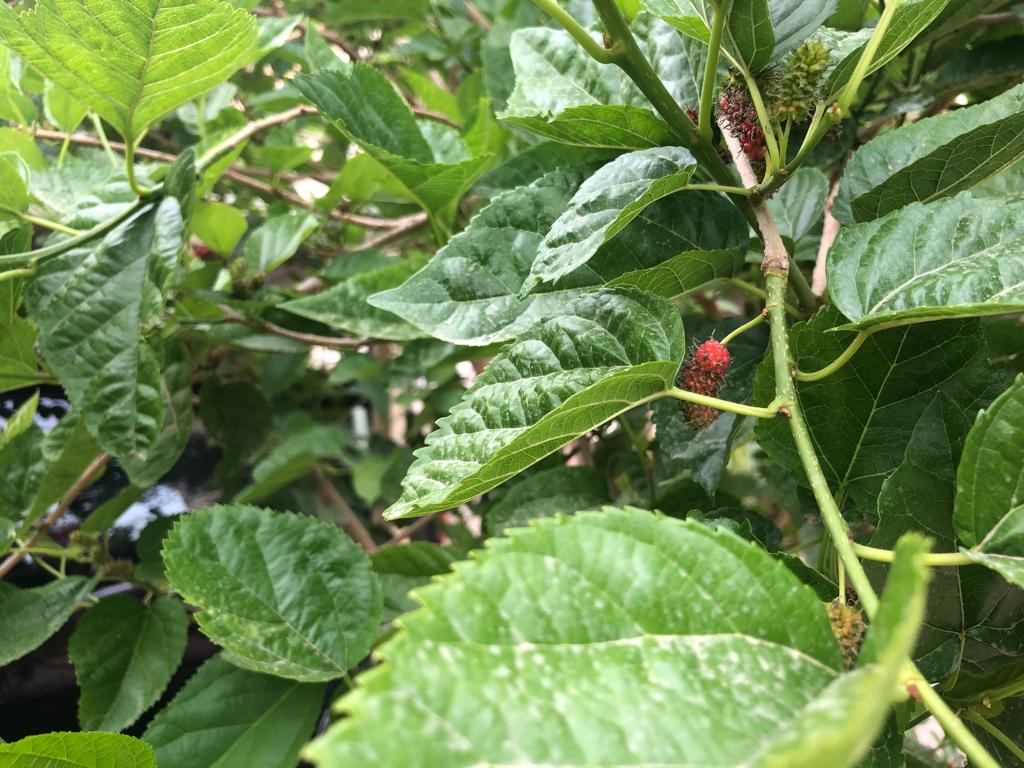Mulberry Tree
Botanical Name:
Morus alba
Common Name:
Common mulberry, Constantinople mulberry, توت إيراني
Genus:
Mulberries (Morus)
Will it survive Kuwait’s summer or is it just seasonal?
Will survive Kuwait’s summer
Description:
The mulberry tree has a unique ornamental appeal. In Kuwait during late January to early February the leaves of the tree start falling and within a few weeks new leaves emerge with tasty fruits. This used to be originally native to China. Where it was vital for silk productions as silkworms will only eat the leaves of this tree.
Toxicity:
Not toxic
Tips for Planting and Watering Needs:
Plant in a partial sun to full sun location during the mid to late September when the highest temperature reaches 35 °C. Water once daily during early winter. During the colder days of winter, you could water once every two to three days. Make sure not to water when there is rain. During early summer water once a day, while during the hotter days of summer water twice daily in the early morning, preferably before sun rise, and after sun set. This is a moisture loving tree, keep soil moist but do not let water accumulate.
Characteristics
Plant Type: Tree
Lifespan: Perennial
Bloom Time: March to June
Plant Height: 10 m to 20 m
Spread: 10 m to 15 m
Difficulty Rating: Easy
Sunlight: Partial to full sun
Fruit Color: White, Red, Pink and Black
Care Guide
Fertilization: Twice in early October and January
Pruning: Trim the dead, diseased and overgrown branches from late June to early September.
Planting Time: September to January (the closer to September the better)
Will it Live in a Pot: Yes, but not recommended. Use high quality potting medium and feed regularly during the growing season.







